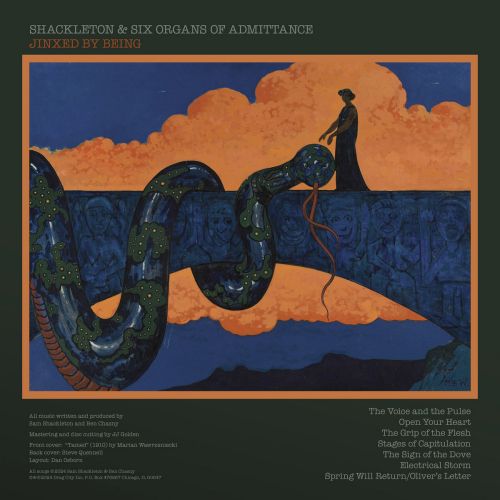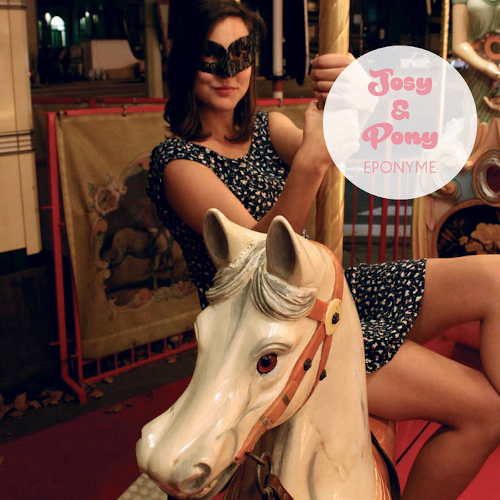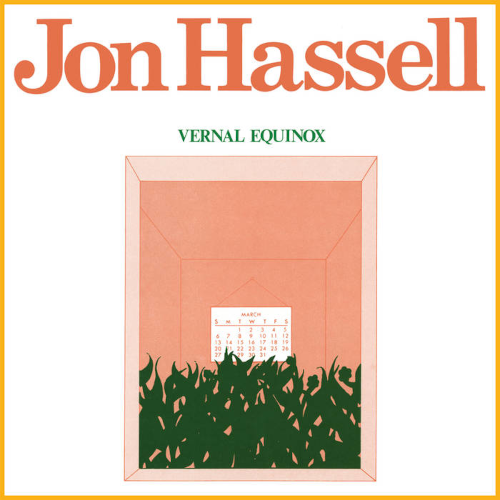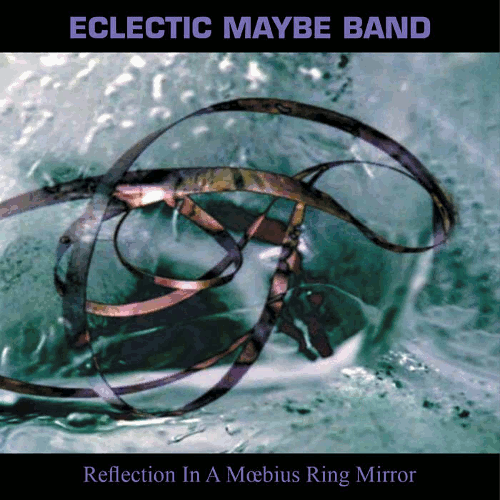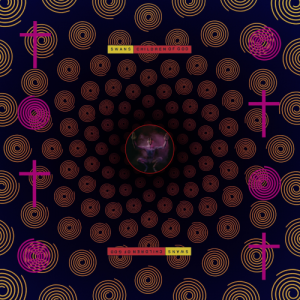 “New Mind” was the soundtrack to a teenage holiday in Cornwall with a couple of mates. It was that kind of holiday: evil cows, bad beer, psychotic karaoke singers (the best-worst version of “Bohemian Rhapsody”), amyl nitrate dreams. One of the people on the trip also writes for this site. He’s not been the same since.
“New Mind” was the soundtrack to a teenage holiday in Cornwall with a couple of mates. It was that kind of holiday: evil cows, bad beer, psychotic karaoke singers (the best-worst version of “Bohemian Rhapsody”), amyl nitrate dreams. One of the people on the trip also writes for this site. He’s not been the same since.
There was always humour and play-acting in Swans and Children Of God explicitly drew linguistic patterns from Deep South preachers, conmen and believers, the tortured and the torturers. Michael Gira was a force, we knew that and, back then, it was hard to say whether that force was an act or an impulse. That kind of thing is even harder to unpick now. The old masculinist fury of frustrations that characterised Swans’ whole approach was starting to decay though, and it’s this album where Swans (the name itself seems to evoke some kind of Lacanian phallic symbolism) open up the doors to the feminine. That Swans recorded this album in Cornwall (think abandoned industrial past) is perhaps coincidental, if you believe such things.
That “New Mind” is followed by “In My Garden”, a Jarboe tour-de-force is important, I think. Yes, the album starts with the usual howl, but that is immediately undermined by the next track, which sees Jarboe to the fore in a track that is both stunningly simple and eloquently beautiful. There’s also a rising, humchattering, tone at the end which, under the influence of anything stronger than exhaustion, causes a kind of time-distortion that drives you forward into a (sometimes) gentle maelstrom. Do not operate heavy machinery, it seems to say.Quick disclaimer: you’ll see this album being the one where Swans embrace folk. I guess that’s true, but this isn’t the gentle strumming of the guy in your pub with the slightly gammy eye and a medieval stringed instrument (well, he’s in my pub). This is only relatively folky when put up against the slowly embracing metal beasts and black holes that Swans used to represent. And there’s nothing in Gira’s guttural preaching that could be mistaken for folk music, unless you’re on the strand of the canon that splinters off towards, say, Comus.
It’s still heavy, even in its lighter moments. Tracks like “Our Love Lies” act as a kind of midpoint between Gira and Jarboe, showing a direction that Swans would embrace more wholeheartedly (and with less bludgeon) by the time they released The Burning World. The Jarboe-led tracks, like “Blood And Honey” and “Blackmail” are a step towards their cover of Stevie Winwood’s “Can’t Find My Way Home” on that album, for instance. These tracks are a welcome absolution in amongst the pounding and the hectoring, and it might be this reason why Swans fans still cling to this album as a kind of exemplar. I’d guess it’s many people’s favourite album in their catalogue and I guess it’s still mine, though it’s always hard to escape the gravitational pull of albums you heard in your most formative teen years. I can’t see past Sonic Youth’s Sister, Big Black’s Songs About… or Coil’s Horse Rotorvator for similar reasons.
I know people who have “Trust Me”, “Real Love” and “Blind Love” on their favourites list but, for me, the ending track, “Children Of God”, is so strong it has a tendency to dissemble the few tracks immediately before it, rendering them garnish. Again, Jarboe is front and centre, with the Swans house band playing their strings out like the band in The Pink Room in David Lynch’s Fire Walk With Me. In many ways, Swans might be seen to be the perfect Lynchian band, but you feel they’re too intense even for Lynch. Even this album, with its light and shade / shade and light offers the wrong kind of ambiguity for his films, I think. Not sure why I needed to think that.
Finally, the elephant in the room. Listening to Swans now isn’t the same as it was. There may be just enough ambiguity in regards to the allegations against Michael Gira to allow listening with a degree of impunity but, whereas the old arguments (considering, say, David Bowie, to pick one icon out of the overspilling mire) about listening with detachment and separating the artist from the Art are still valid and perhaps not necessary to restate here, with Swans there is an added confusion. Swans’ songs are about that kind of moral ambiguity, which seemed a valid investigation when presented as art, but now need to be understood in terms of action, impulse-control and misunderstanding (I don’t claim to know anything about the truth of the matter, only that there are at least two truths which can never align).Swans were always about the flaws and fragility of masculinity and as a flawed and sometimes fragile man they can be difficult to listen to. Gira was never a saint, and never claimed to be, but to play in the entrails of moral ambiguity as much of his music does was a risky move then and is riskier now. The broken knees of Gira’s voice, often given angelic assistance by Jarboe’s here, seems truer now than it was then, when I guess we always thought he was playing a role à la Nick Cave’s murder ballads. He means it, maaan. Truer but also more resonant, which gives this album a greater depth as Art and a degree of “should I be listening?” cognitive dissonance that can make it quite uncomfortable. There’s a bare honesty on Children Of God which has been laid out like a beautifully dissected calf.
There’s unmistakable beauty and ferocity, and a Wiseblood (the film, not the band with Foetus and Roli Mosimann) howl throughout this album and people are right to praise that; but it does require deep listening and contemplation now in the way that it didn’t use to. In the ’80s, as a teenager, you could whack on Swans and sway and bend and show your muscles and head-bang if you wanted, you could explore your nascent masculinity and play around with it. Things are different now. Now you are required to contemplate, to meditate on what these themes mean in the real world, and you might not want to look too closely into a soul that might be similar to your own. Swans talk a lot about love but it’s a brutal, obsessive form and that itself is something that we are struggling with, as a society of enlightened people, since it seems to bring with it a lack of reason, which we are all expected to sanctify.There’s a world of debate about this and this album is one place to start. Men are mistakes, waiting, someone close to me once said and perhaps, as Swans seem to believe, only God can save them.
-Loki-
